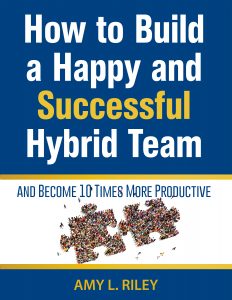Pillar 4: The Courage to Be Bold and Create the Extraordinary
THE COURAGE OF A LEADER® 4 PILLARS
Our world, right now, needs leaders who know how to inspire, engage and get extraordinary results. As a leader, you’ve got opportunities, pressures, questions and complexities coming at you from all directions. You have team members who want meaningful work to do. You have stakeholders who need you to consistently create value. You work in dynamic marketplaces with competitive pressure. You have peers with whom you share the company’s resources. How do you effectively lead in these circumstances with courage?
In my 2-plus decades of experience developing leaders at all levels, I’ve seen that leaders who thrive in these circumstances consistently demonstrate courage in 4 distinct ways, which are captured in The Courage of a Leader 4 Pillars®:
- They uncover and share their authentic selves.
- They say what needs to be said.
- They trust the legacy (their leadership legacy).
- They are bold and create the extraordinary.
In this blog, I will share more about Pillar 4: The Courage to Be Bold and Create the Extraordinary.
Pillar 4: The Courage to Be Bold and Create the Extraordinary
How to be bold and create the extraordinary? Sounds like a big topic that would involve lots of methods and techniques. Yet there are 2 secrets to boldly creating extraordinary results: 1. Get your head in the clouds; and 2. Show some restraint. Let me explain what I mean by both of those phrases.
Get Your Head In The Clouds.
Be visionary. Even if you don’t know yourself as someone who can create a compelling vision, you can. We all just take a different approach, depending on our strengths. Dream about what would be ideal. If you don’t dream well on your own, invite others to a brainstorming session. If you’re great at dreaming up the technology advancements, yet not great at articulating the benefits for people and business, invite marketing and learning and development professionals to co-create with you.
Show Some Restraint.
We want to stretch our teams regularly, yet not stretch them to the breaking point. This makes perfect sense in theory and is often difficult in practice. We see an opportunity to launch in 2 new markets before the end of the quarter or to smash a sales goal and we get all hands on deck. This is fine – and can actually be quite motivating – from time to time. The problem is the big push is addicting. We do it once and we want to do it again. At some point, this becomes un-motivating for team members. They don’t know when the next big push is coming and they haven’t recovered from the previous big push when it comes. Eventually, employees are burnt out.
An alternative – that still nets extraordinary results – is to have team members’ involvement in setting a regular stretch goal. This stretch goal, in some circumstances, is easy to achieve. Yet, it’s a stretch goal because sometimes it’s quite difficult to achieve. When the goal remains consistent and the team consistently meets it, often with a great deal of effort (and sometimes more easily), confidence grows on the team. The team is known as one that constantly meets its mark, one that has sustained high performance. The results, over time, are extraordinary. And the team members are engaged, proud, confident and not burnt out.
A new Plant Manager I worked with, Aaron, saw that updated Standard Operating Process documentation (SOPs) were needed. The current SOPs were sometimes sorely out-of-date and were causing confusion. The real knowledge was with the operators, yet you never knew who had the final say on what. This problem was creating many inefficiencies, yet the problem also seemed insurmountable. Hundreds of documents needed to be updated. Aaron decided it was time to tackle the SOPs. Up-to-date, accurate process information would establish the foundation for so many possible cost-saving improvements. They needed a plan. Yet, how do you eat an elephant of this size? Show some restraint.
Aaron met with the handful of Production Supervisors whom he had decided would own this endeavor. They certainly wouldn’t do all of the work that needed to be done, yet they were the folks who could coordinate and drive the effort. He needed their commitment and he needed them to create a realistic, yet stretch, plan. They quickly zeroed in on the appeal of a weekly goal. The question was how many SOPs could be updated weekly? The discussion went in circles for a while, “Depends on production levels and what maintenance has scheduled.” “It would change depending on how much customers drop in on us.” “Some weeks we could crank through a lot, other weeks very little.”
Aaron pushed for a number that would be achievable no matter what took place during the week. He knew that if the group didn’t commit to a number, it would be easy for weeks to slip by without much SOP updating. The Supervisors decided on 8 SOPs per week. This was somewhat disheartening because it would take them two-thirds of a year to update the documentation. However, Aaron didn’t push them further. He wanted consistent, weekly production on the SOPs. They agreed and moved forward.
Around mid-week, Aaron would come around and ask how they were tracking. It often led to a second half of the week scramble. Yet, the goal was met every week, with only a couple of exceptions, over several months. As the end-of-the-year shutdown approached, the Supervisors could see the progress made and the benefits they were experiencing as a result. They asked Aaron if they and a number of operators could come in over shutdown and finish off the documentation process. And they nearly did! Just a few more procedures needed input from folks that weren’t present during shutdown, and one week later they had a full set of accurate SOPs for the plant!
Aaron firmly believes that if he had let the goal fluctuate each week, it would have fluctuated to little to none. A steady pace that was at times challenging is what created momentum and a sense of accomplishment. It was a great example of how showing some restraint can lead to extraordinary results.
To inspire, engage and get extraordinary results; leaders need to demonstrate courage in these 4 distinct ways. The 4 pillars of courageous leadership are accessible by any leader at any level.
What courageous action will you take today?
What vision will you create for yourself or your group?
How will you encourage the team to set a regular stretch goal?















 A Summary of The Courage of a Leader® 4 Pillars
A Summary of The Courage of a Leader® 4 Pillars




